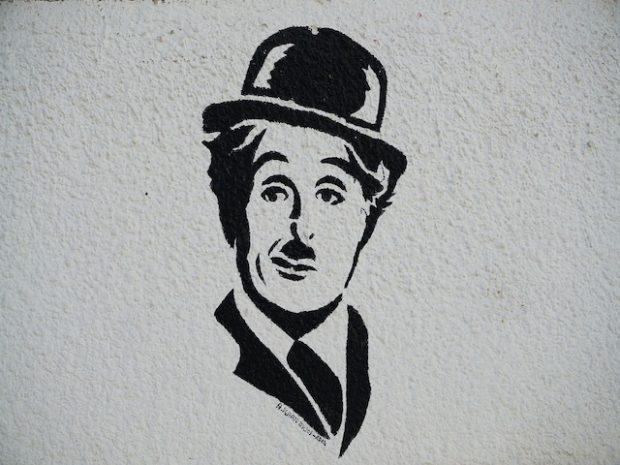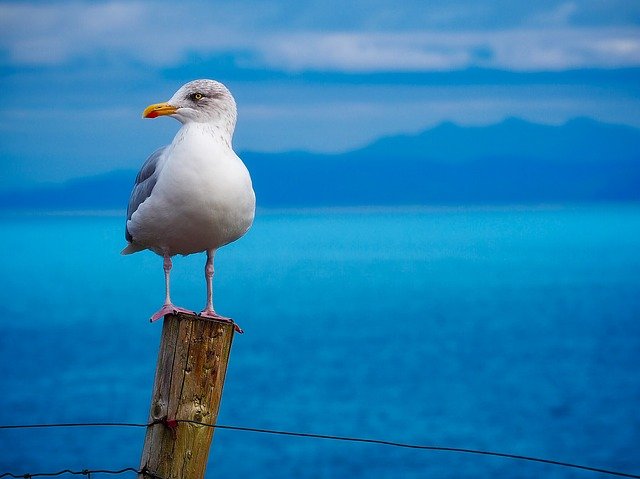You have no items in your cart. Want to get some nice things?
Go shopping
Any story, Chaplin said, can be told without human voice, with only a fork and a spoon, at a dinner table. And, invited to many dinner parties, Chaplin, they say, could prove it.
What makes writing not good? The same things which make people not good. An unawareness of their dishonesties, their entrenched imitativeness; a writer who has spent too many years in front of a television will spend many years, if he or she is trying to be a writer of some goodness, discharging those memories of dramas on televisions. Half of his/her writing is vomiting them up, sick of turning them around in one’s stomach all those years, feeling the sound of their words as if in a tin can, never able to fully absorb them, aware of some pervasiveness of death of honesty in them, death of innovation. Yet only half of the writer/artist is re-wounded by this repeating what was seen and heard there, by this disgorgement; a good half of the writer/artist is healed through catharsis.
Flatness is bad. Too much too even calm. Unless it is calm with an eeriness, while terrible things go on, to show that everywhere there is a pond, there is a lily pad, there is a frog ready to leap. Sometimes the narrator must be all calm; sometimes descriptions of places must be all calm, to lull the reader into a somniance. Before things begin.
But not too much constant agitation. That will create only the need and wish for a dark blue sleep.
The layers and meanings of words. The writer who does not understand the double and triple-speak of words can still fool anyone into almost anything, as can societal attitudes. But a writer who approaches words with an already-ready sense of suspiciousness can rule them. So intelligence, x-ray vision, are paramount: mind you, these are unusual traits, the traits of superheroes.
But most of all, more than dishonesties, or too much from television to disgorge, or too much flatness or agitation, or too little wise suspicion of common words – most of all, a writer is bad if he or she cannot self-generate heat, power. We are, as writers, the solar collector, the hybrid engine: we take energy from what surrounds us or our remembering of surroundings; but we must also, through the rhythm and placement of our speech, with the jabbing moving dance or battle motions of our ideas woven through whatever is written, make energy: that is the writer’s job. Each writer infuses what he finds with his own needs and medicine of response: he shows the inert reader that he or she can be offended or delighted by what she sees, but the dedicated human brain deeply wants to overcome danger, and, with enough resolve, can often overcome obstacles, peril. In dwindling summary: the writer always is the fairy tale riddle-solver, the one fate has brought, somehow entering the story already knowing what is needed – or by end of story or novel does.
What the writer needs may be only an understanding of inevitabilities, and a way to accept and even find beautiful the inevitabilities. He or she can try to make change, and he or she does not necessarily need to succeed.
Around an oval table, writers can read stories about finding a large Canadian goose nesting on their roof, staying there till summer, her five goose-eggs laid and lined up in a row, ready to hatch; they can read a poem while jazz is played; they can read a story filled with cursing words. A woman can go to a French enclave in Canada and meekly submit to the rudenesses which people inflict upon the unFrench outsider and endure it for twenty-five years which then become at least twenty-five chapters. A giant, in a story, can work his way into a house, laugh, destroy things; people can live in a society where their minds are boundaried and controlled, and never have the wish, let alone the need, to have courage enough to escape; someone can decide the most loving embrace they have ever felt is the clasp of a seatbelt on an airplane, loving the stewardesses nagging him about being buckled in. A writer can write in one whole book about his proud love for his religion, about the comfort like home it gives him.
But what is underneath? The American writer about the woman in French Canada may be realizing now the court is hers. The writer who thinks he is in love with his religion may be realizing as he writes that it is the setting sun he looks to each day and adores, not the people or rituals or stories in churches; and that sun travels – everywhere. The writer who loves the buckling ritual on the plane may be secretly wishing for the courage to unbuckle on another country, or continent, and somehow stay. The person writing about people over-controlled in a society may be really in love with that control, though everyone thinks the purpose of the written piece is to lash out against the control. The giant? The giant may represent the author’s jealous and inflamed heart, his memory of his own displacement, of being made small; he wants all to experience his displaced heart. And the woman with the goose on her roof may be stating that she is feeling the authenticity of “impostor syndrome” – the truth that all of us are frauds, compared to our child selves, when we were new and we knew the greatest love we will ever know, our early love for our mothers, and school, and sleep.
And the writer who reads his writing while jazz is played by a certain player? He by the time he is finished realizes his writing is jazz, too, that the musician whose recording he used was only his five delicious minutes of using him the magician as a crutch. Taking courage from the original players of jazz who found their genius footing in a country which mocked them, the writer is borrowing footing from the ones who defeated the undefeatable odds: on a European civilization’s instruments, they outdid them, without their instructions or rule books, tuition, without their composers. In one generation.
How else does a good writer be a good writer? She or he admits they know just what, even though it is unnamed still to them as they write, they are seeking. Yes, they are greedy. Yes, they have an overarching and ridiculous need to have something they might not win or even deserve: and they insist on an almost ridiculous excess of dignity. But they admit their humbleness, that they are lacking. And from that comes humor, or sardonicness; you’ve admitted, as a writer, need.
Declared mortal, vulnerable: already wounded, soft white belly even more vulnerable, because you have pulled aside your shirt to show the wound. But admired; you must be strong to be so reckless. Only strong can dare the fates this way: such brave display.
Writers have a music a music class or tutor cannot give. As great singers must have deeply felt the feel of notes in their silent throats through earliest childhood, writers resonate with the music of the books they have read. Neither music nor novels come from class. As a tree turns in the wind, as water rounds edges of boulders; music logic has a fall of gravity. Writing logic has an even sharper gravity – the rise and fall of necessity. You the writer prove you see, or saw, an unendurability before you.
Consider Chaplin. Chaplin takes his sad little too-large hat, his eyebrows like piles of dark-burned ash, shoes which yes are shoes but obviously like his dreams oversized. His cane which is to reassure, remind him, that the wisdom of the old man is with him, though he is young. To town. His eyes like coals, he wanders, overflowing with dreaming. Dreaming he can rise above the poor and the poorly-placed and win the lovely girl, who will see the fervor and the delight of his heart, and is the symbol of his prize.
Chaplin improvises with each turn of the story; he is willing to do anything, to win. Arrogance of any type he can both mock and envy, absorbing as he simultaneously pushes away. The airplane Chaplin realizes is full of people who have forgotten what the adventurous meaning of life is. To them the seatbelt is an empty, unloving ritual: to them it is an annoyance. Chaplin would see a goose on a roof is a sign he is lucky to be human; the goose must be there to make him think of fairy tales, a sign he should understand the goose and gander, brave and nesting and valiant, there to lead the way for the next generation of nesters; the goose should make him long for family around him, too, to guard him and give him an increased feeling of strength (Chaplin in his last, fourth marriage, in Switzerland, fathered his last set of children: eight.)
Bored groups of people are really the audience Chaplin dreams of, who are waiting to see how he sets himself free from dull repetition and attitudes; an audience waiting almost eagerly to be awakened. They’ve forgotten, or maybe never learned well enough, the special art of making themselves the fool. Or how to watch for the jealous giant who is everywhere, because the jealous giant is in each of us. When we are on the plane, Chaplin knows, we need instead of pulling down the airplane’s tiny plastic beige window shades when the glare of the sun is on us, to let it shine on us and diffract us. For the sun, the shining sun, is the base of, outdoes, all religions.
After Chaplin, where is the impostor? How do we find him? Chaplin would have us recognize the great impostor also is always in us. Acting and actors are half-complete impostors. They might wear the Chaplin hat: an admission that to up-end any impostors, you must admit first you are one, too.
As Tolstoy said, all of writing is about the stranger who comes to town, or the trip a man makes to the strange town. So: writing then is startlement, introductions, rejections. The fairy tale riddle-solver seeing the problems before him.
And what do you find? That a person has both badness and goodness; that a town does, too. But you as a writer are a force of control, self-comfort, movement; you are a painter at an easel, looking for something or someone beautiful, wanting to record something startlingly, bravely true, something no one has recorded before. You gain something by meeting a stranger, also, by meeting a strange town.
The people in the strange town? They never travelled your trip, never heard anyone call out to you watch out for that step which is their way of saying it is their house and they know that step is theirs, not yours, you are but the awkward visitor, so clumsy you would likely fall. (What is dressed up as a welcome is really their comment on how awkward they expect you to be.) The writer says thank you but beneath the polite thank you he knows the real intent of the admonishment: almost a wish that he would fall, or full credit for having saved clumsy him, the invading guest.
Oh, do you think I’m clumsy, he calls out, all grace.
Or better, like Chaplin, tips into a neat double set of cartwheels, landing almost exactly at his chair at the table, smoothing his hair, raising and lowering his eyebrows, settling his cap, leaning his cane against the table to neatly, precisely, hang his hat from top of its crook, that deep crook very much like a goose’s or a gander’s neck deeply bent, attentive. Chaplin sits now alert at a supper table where all the bored guests are set, as neatly as silverware, as rows of seats on a plane; waiting, they are, for the one who will save them from their boredom, show them something they have never seen on television: Waiting for Chaplin. Chaplin, ready, maybe, to tell a story: with one spoon and one fork.

About Rebecca Pyle
Once upon a time, while living and working in London, Rebecca Pyle shared a first prize purse in The National Poetry Competition with the wonderful Irish poet and overall winner Medbh McGuckian. Recently Rebecca's essays, fiction, poetry, and art reviews are appearing in art/lit journals such as The National Poetry Review, The Honest Ulsterman, Guesthouse, The Chattahoochee Review, The Penn Review, Belle Ombre, Cobalt Review, Gargoyle magazine, and Terrain.org. Rebecca, American, is an artist, too, her artwork appearing in New England Review, Grist, december, Belle Ombre, JuxtaProse, and in numerous others. (See rebeccapyleartist.com.)



